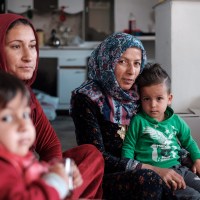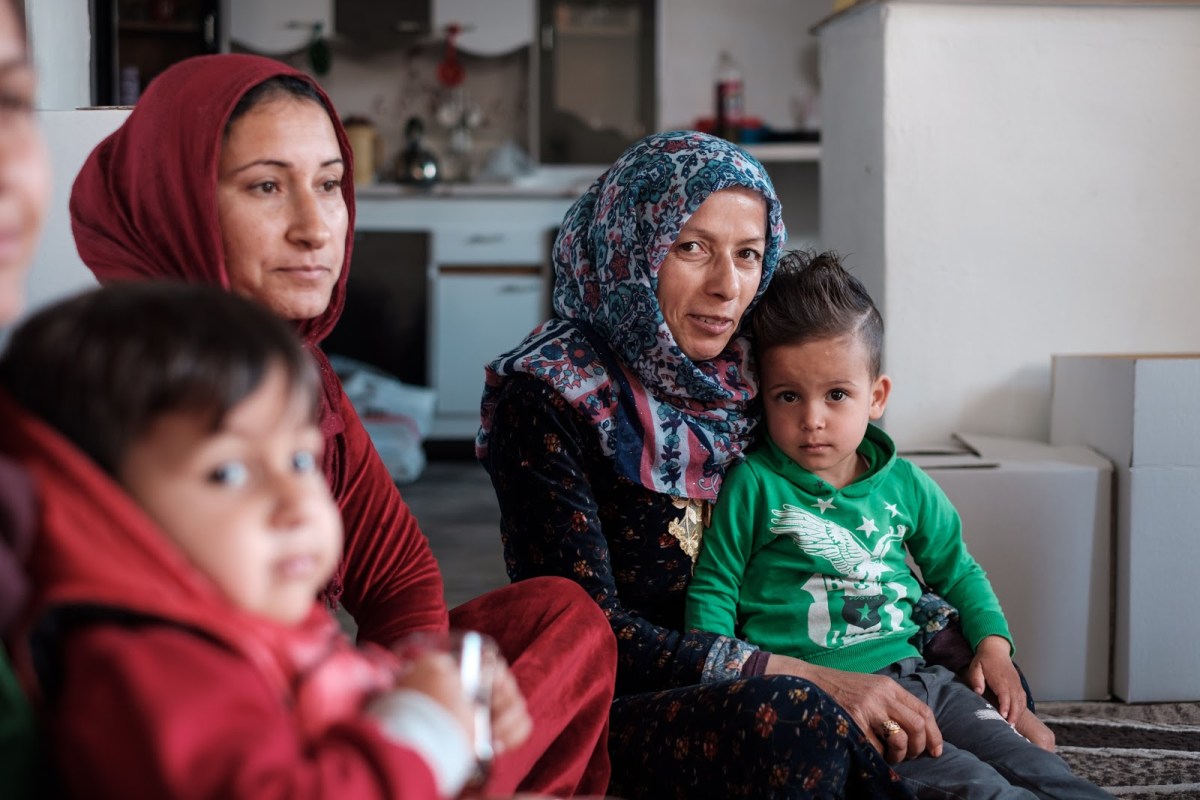The walls of the small room are lined with women sitting cross-legged, shoulder-to-shoulder. Each has a ball of yarn in her lap, a crochet hook in hand, and a young child nearby. They jockey to make space for glasses of tea, so the hot liquid won’t get knocked over by toddlers.
There is chatter and laughter as these women work side-by-side to make washcloths and baby sweaters, which will end up in our online shop.
But for these makers—who also happen to be refugees—there is space for little else. They take turns hosting each other to have company while they work on hand-crafted products, but there is no space in their tiny refugee camp homes for supplies, storage, or a place to collaborate easily.
The Need
“These refugee women, they’ve been making products inside their houses, which has been great because they can work alongside their children. However, as they grow in their skills, and as their sales grow, they don’t actually have the space inside of their small tent or house to be able to keep all of the supplies that they need.”
Jessica Courtney has had a role in shepherding the businesses of makers in Iraq, from the idea stage to working business, for more than five years. She’s witnessed the growth of skills in the makers we work with, and has seen the complications that can come with growing a handicraft business in a refugee camp.
“It’s becoming a little bit dangerous for their children,” she says of the candlemakers we’re coaching in creating for the local market. “They’re melting the wax in the same places where their children are running around.” Tiny homes afford few other options.
“We’ve just grown to a place where these women need a workshop. They need somewhere where they can go, where they can be supported in their skills, receive more business training, and their children have a safe place to be while they work.”
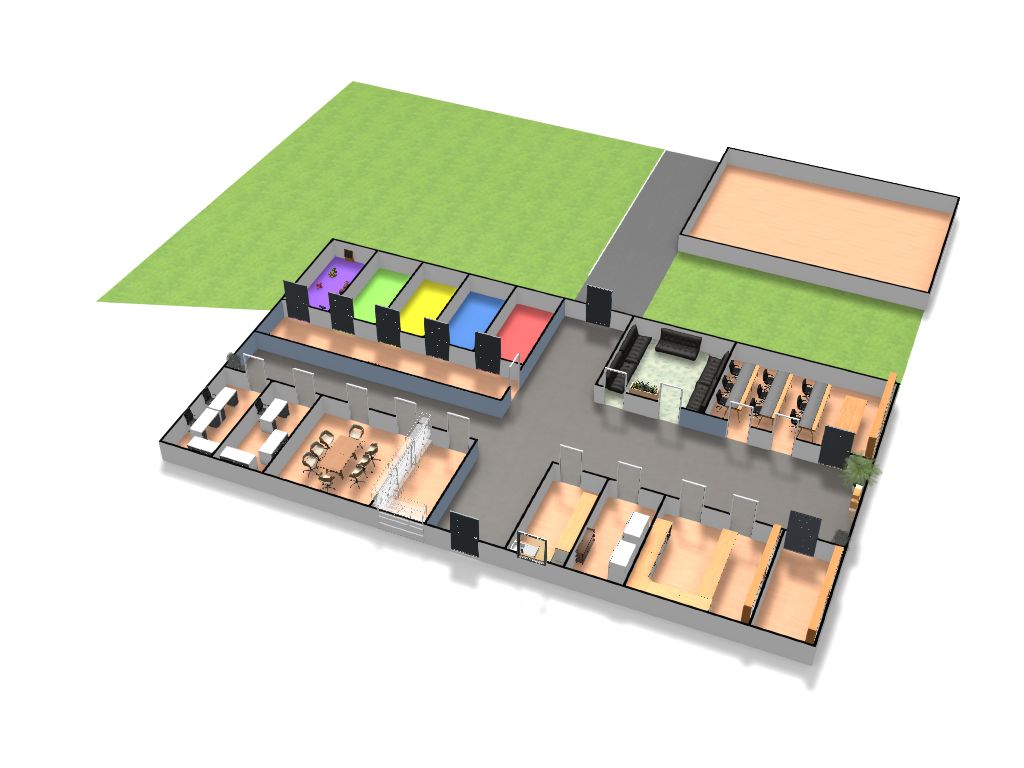
The Opportunity
We’re creating a maker space inside a camp for Syrian refugees. We’re creating a beautiful place for women to come and grow in skill, business, and relationships.
There will be dedicated rooms for knitting and crochet, sewing, candle making, and basket weaving, along with a health inspector-approved kitchen for women who make food products to sell. Women will have access to kick-start supplies, so they can begin their businesses debt-free.
Each room will be set up with the right tools and supplies. They will be able to melt wax, or pour lye, without worrying that their children will come near. The room for knitting and crochet will be set up Syrian-style, so women can come and sit on cushions on the floor. The sewing room will include a large cutting table, so anything a woman can imagine, she has the space to create.
There will also be a constant supply of electricity, unlike in their homes.
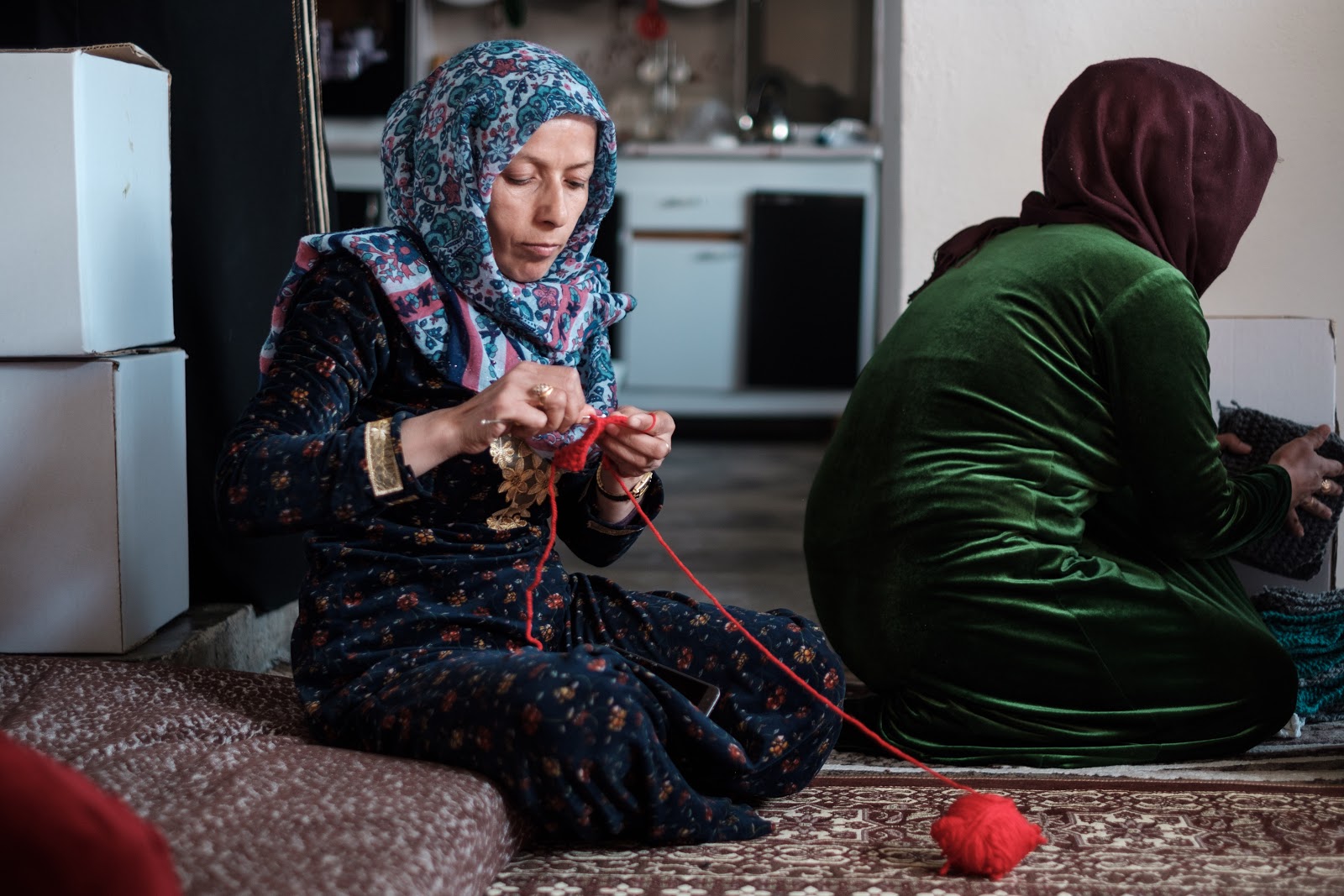
A Place to Elevate Skills
The center will also be a one-to-one coaching hub for women interested in starting or growing their own businesses.
Women will benefit from weekly training in business management including finance, marketing, product development, sales, market research, and supply acquisition.
“We have had incredible success with these women working one-to-one in their houses, to coach them into who they want to be, and to determine the kind of business that they want. I think the next step is helping to upgrade their skills even more.”
Over hours of listening to makers, we’ve heard the gaps in skills that hold them back. They’ve never learned how to keep the books, or how to grow their businesses online. They wonder about better ways to use social media to push out their designs.
These are all skills we’re well-positioned to share.
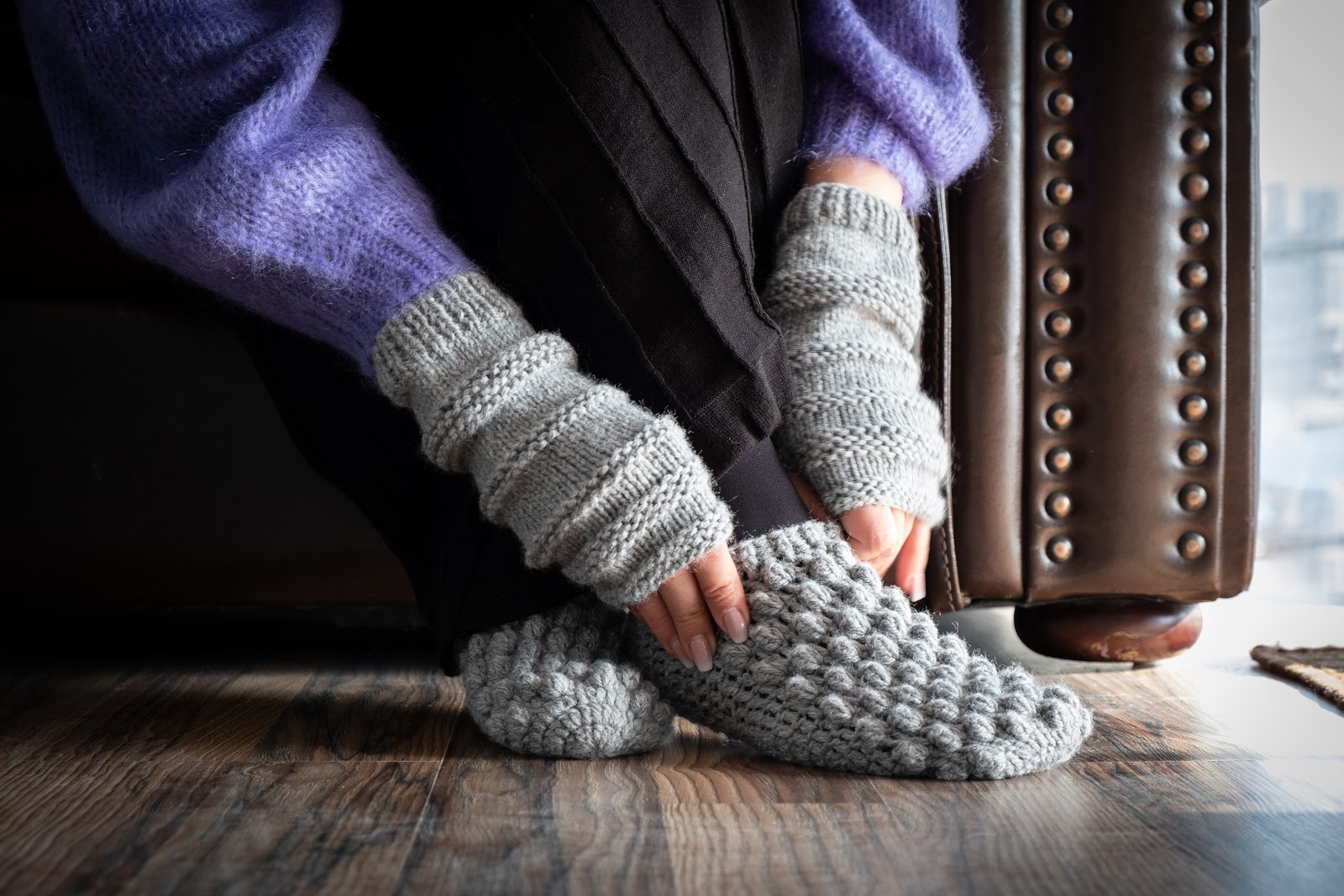
A Place to Bridge with the Local Community
In the beginning, the maker space will be for Syrian women who fled home because of war. But that’s not where the project will stay.
“Because these families cannot return home it is likely that it will become part of the small town that it’s in. We do not anticipate that these refugees are ever going home. The places where they’re from in Syria are currently under attack in the new crisis in the northeast, and they don’t feel safe. They don’t feel safe from their own government. They don’t feel safe from the Turkish Government. They only feel safe here in Iraq.
“And so it is likely that these people will assimilate, they will stay in the houses that they have built inside the camp, and they will become members of the community here.”
As families from outside the community–Syrians living in northern Iraq–slowly make this camp home, it’s brought challenges to local families living outside the perimeter fence of the camp.
“We are hopeful that after the first six months of having only women who are refugees in this space, that we will be able to welcome women from what we call the ‘host community.’ The small town nearest the camp is quite poor. Their residents constantly see aid coming in for the refugees and bypassing them. And they may not have food to eat that month either,” Jessica explained. Our plans include opening up the maker space “to welcome community women outside of the refugee camp into the space which will help to increase their income as well.”
“With this project we’re starting to create a bridge between the two different communities, and to help to compensate for the gap that has been building for the last five years.” Jessica understands that to bridge two separate communities, currently divided by both support and razor wire, it takes more than lip service—it requires investment and opportunity.
A Place Where the Tide Rises for Everyone
Refugees face difficulties in finding employment—and the poverty that comes along with unemployment–for a variety of reasons. For some, it’s because they didn’t get much education. For others, it’s because they’re missing identity papers, or because they don’t have work experience in sectors outside of construction and agriculture—entry-level work that is seasonally in demand.
For those living in neighboring towns, they experience strained living conditions because of the sudden influx of families with significant needs. There are fewer jobs available in an already bad economic market. Their rural infrastructure systems are taxed: electrical, medical, internet, and all other social services designed for a much smaller population.
But one thing these groups have in common: many of the women have been hand-crafting goods for decades. They have skills that are largely unrecognized and undervalued.
Our maker space, for those who have artisanal skills but who lack proper tools, facilities, and market contacts, will give the support they need. Makers will receive training on basic business skills and financial literacy, in a way that makes sense for them whether they’re ever been to school or not.
The project will bring economic benefits to makers and their families. It will make a way to grow peaceful ties between refugees and host communities, as a wide range of community members benefit from the economic development that comes with better access to local and international supply chains.
When women on both sides of the razor wire fence succeed, everyone is better off.
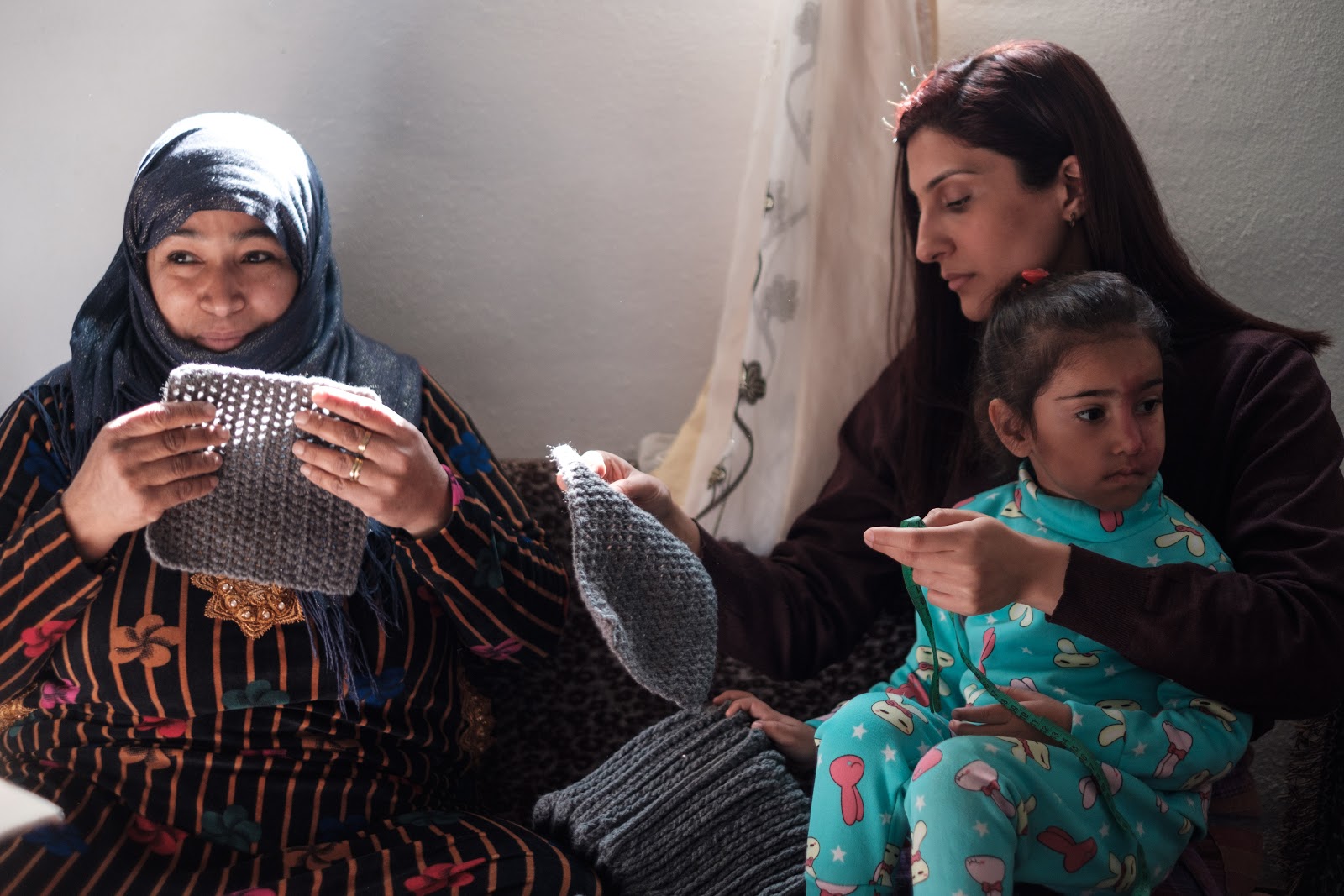
A Place to Help Kids Thrive
The key to making this project work is providing makers with a safe, enriching space where their children can thrive. Women will be able to come either for a morning shift, or an afternoon shift, and they will know that quality child care is provided.
Kids in a range of ages will be together in one room, where they can help and teach each other in a preschool setting. They will have access to the kinds of toys, educational experiences, and teaching that you would want for your own kids. Kids will be safe, they will increase their education, and their moms will have a few hours of freedom to focus on their designs and production.
This is where you come in: help us outfit the preschool—the key that gives a wide range of women the ability to say “yes!” to starting and growing a business.
Donate for carpet, educational supplies, and snacks that keep young, hungry minds fueled.

